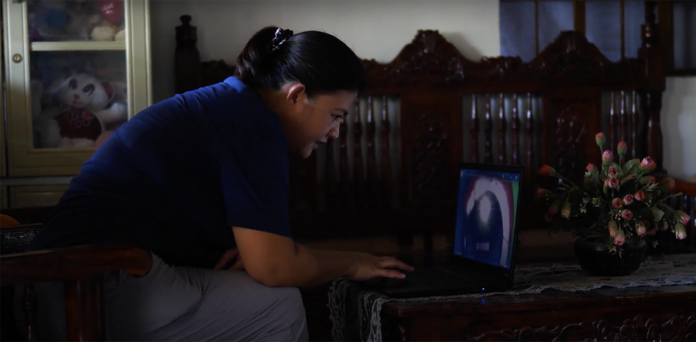Many people access pirated content thinking they have saved precious bucks, but nothing is ever really free. As one woman who watched a pirated movie found out, the cost is higher than even a premium movie ticket.
Marilous Esmas, a housewife from Aliaga, Nueva Ecija, was once fond of accessing free movies online, clicking on links she’d find on Facebook. But what she thought was free content led to harm. Using links to pirated movies, hackers got to access her computer and captured her bank details, stealing all her money in the process.
“Dati po kasi mahilig akong mag-download ng mga free movies sa Facebook. Kapag nakakita ako ng link, kini-click ko na po siya. Nagtataka po ako nung time na ‘yon talagang bumabagal po ‘yung internet namin. ‘Yun pala may nangyayari nang hindi maganda,” Esmas said in sharing about her ordeal.
“Nawalan po ako ng pera sa bangko. Hindi ko po alam kung paano nangyari ‘yon,” she said.
As it turned out, accessing free movies was more costly for the housewife. Her bank found that her account was indeed hacked through these so-called free movie links. She recalled that whenever she would click on the said links, her personal details were auto-filled into information sheets on the site. Further investigation showed that an unregistered company may have also been siphoning money from other people’s accounts, not just Esmas’.
Esmas has learned her lesson and now opts to subscribe to and pay for legitimate platforms that she knows are secure.
“Nakakadala din kasi. ‘Yung akala ko mas makakatipid ako, ‘yun din po pala mas malaki ang mawawala sa akin,” she said.
Globe continues to warn its customers about rampant online piracy and the danger this poses to all users.
“Online piracy is a problem that unnecessarily exposes people to malware and online threats. We may feel like we’re getting a great deal whenever we access a pirated movie online because it is “free”, but the ensuing security risks are far costlier than we think,” said Globe chief information security officer Anton Bonifacio.
Globe has been undertaking a multi-pronged approach to protect customers against the harmful effects of online piracy. This is in line with its commitment to the United Nations Sustainable Development Goals, particularly SDG No. 9, which underscores the role of infrastructure and innovation in development.
Aside from blocking validated illegal piracy sites, Globe is also helping educate its customers about becoming more responsible and intelligent custodians of content through its #PlayItRight campaign.
Launched back in 2017, this initiative now covers various industries such as film, music, gaming, digital literacy, and education.
Through its partnership with the Asia Video Industry Association (AVIA) and its membership in AVIA’s Coalition Against Piracy (CAP), Globe is also supporting the campaign for increased protection of the creative industry against piracy-linked phishing.
The group is highlighting the need to revise the country’s Intellectual Property (IP) Code through proposed House Bill No. 0799 led by Albay 2nd District Rep. Joey Salceda, which aims to make the country’s patent application system “more attuned to the digital age” and boost the power of regulators against online piracy, among others.
The proposed amendments will empower regulators with “permanent blocking orders, takedown orders, cease-and-desist or disable access orders” against offenders. This is vital especially since the current IP code’s definition of pirated goods does not cover electronic or online content– a loophole that has enabled online piracy to persist.
A recent YouGov 2022 Piracy Landscape Survey commissioned by AVIA’s CAP showed that 61% of local respondents have consumed pirated content. Primary sources cited for these pirated links are social media and messaging platforms at 44%. Other sources of pirated content include streaming and torrent sites at 20%, and illicit streaming devices and apps also at 20%.
